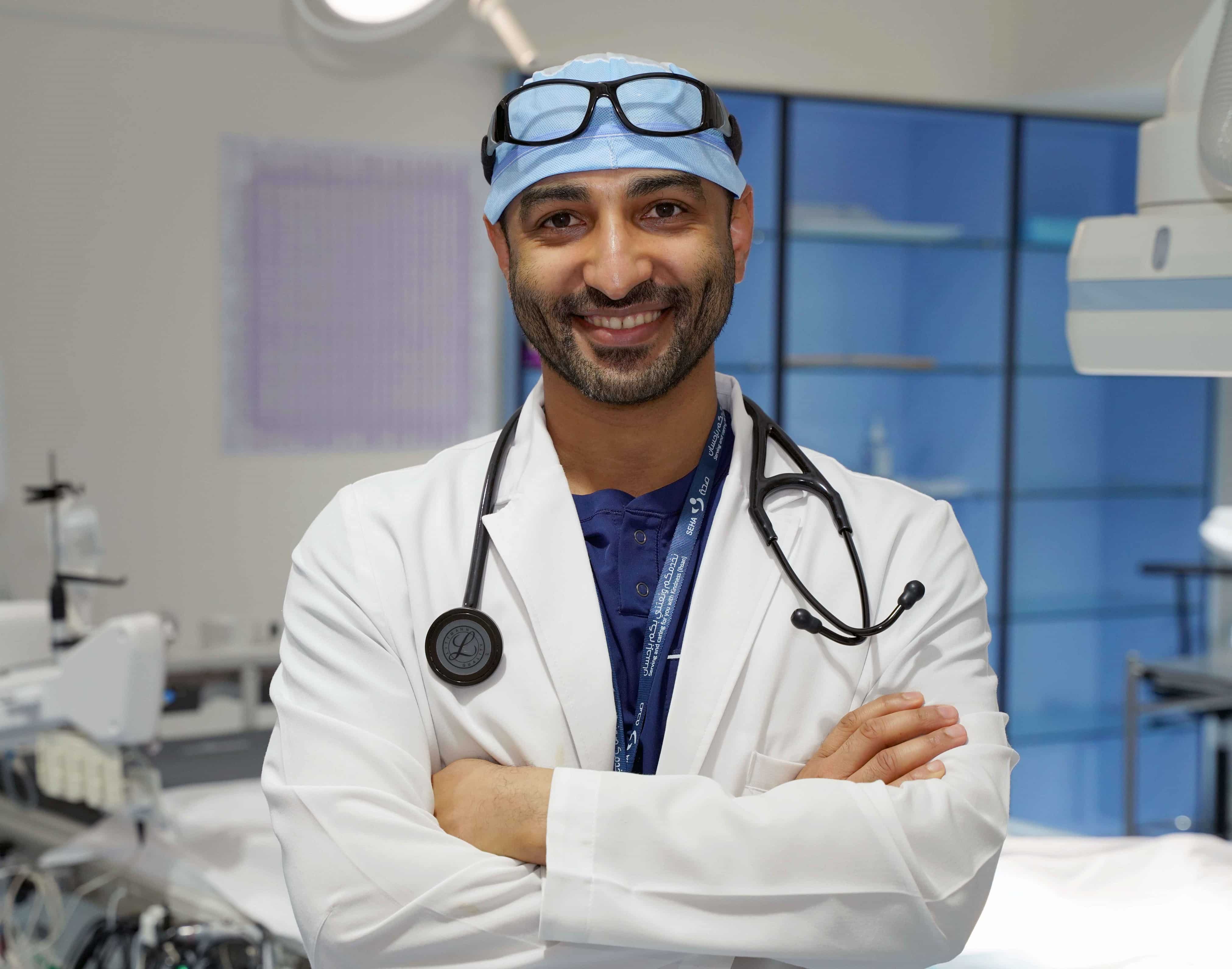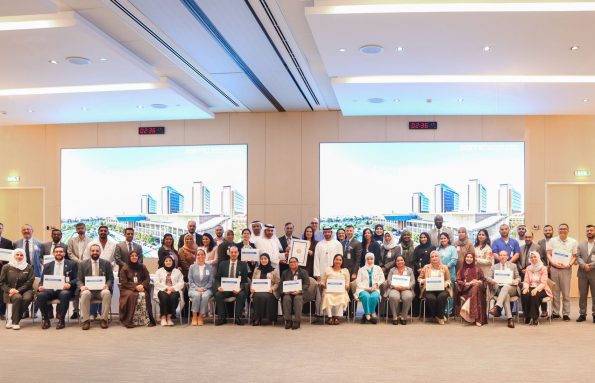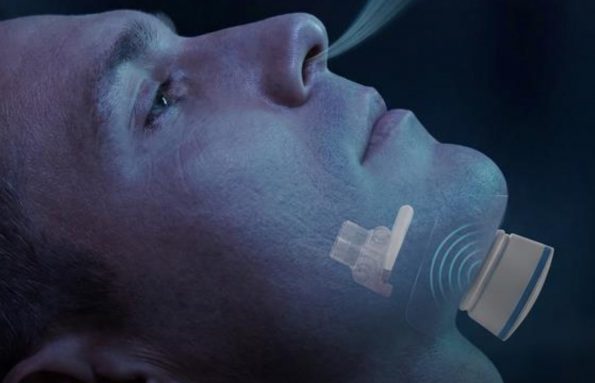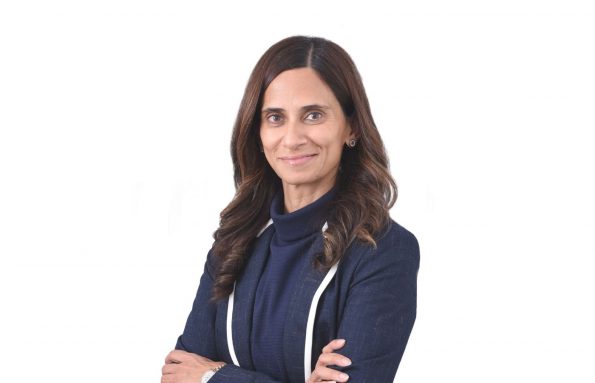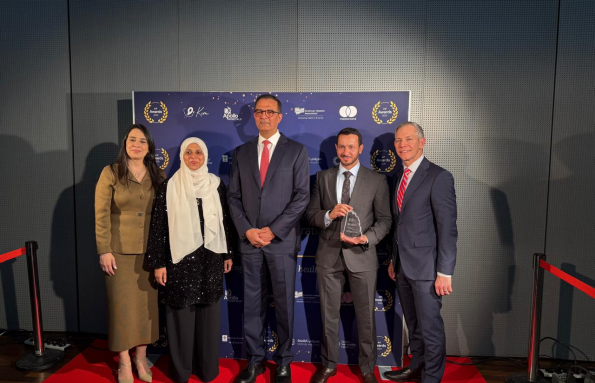Abu Dhabi, United Arab Emirates. July 7, 2021: Sheikh Shakhbout Medical City (SSMC), one of the UAE’s largest hospitals for serious and complex care and a joint-venture partnership between Abu Dhabi Health Services Company (SEHA) and Mayo Clinic, has announced the launch of its Electrophysiology (EP) lab as part of the facility’s Division of Cardiology. As part of the new lab, EP services from Sheikh Khalifa Medical City (SKMC) are integrating with that at SSMC to provide a comprehensive model of care as part of SEHA’s broader service line integration initiatives. The service, offered at SKMC since its inception in 2005, diagnosed and treated thousands of patients over the years, becoming the most inclusive and largest of its kind across the UAE and the preferred choice for patient referrals. It is also the only facility in the UAE performing pediatric electrophysiology procedures. The service integration serves SEHA’s journey towards a Group Practice Model, allowing clinical services to be provided by expert clinicians under a unified system in multiple health care facilities. Dr. Omar Al Falasi, consultant cardiologist/electrophysiologist and director of Cardiac Electrophysiology service, SSMC said: “Under the Group Practice Model, we have a valuable opportunity to bring together experts across the SEHA network providing the community with adept, specialized and holistic care. Pairing SKMC’s extensive and local expertise in electrophysiology with SSMC and Mayo Clinic’s renowned reputation has allowed us to consolidate our mutual passion for patient care to deliver world-class services to the community.” The new EP lab is one of its kind in the UAE thanks to having three different types of 3D mapping systems, the only EP lab in the country to have such an extensive array of state-of-the-art tools and resources. The lab incorporates the latest fluoroscopy technology allowing significant reductions in radiation exposure to both patient and operator as well as the integration of cardiac fluoroscopic images with electrophysiology 3D maps and intracardiac echocardiography. It is staffed by a multidisciplinary team of esteemed professionals, including three EP consultants with American and Canadian board qualifications, two specialist physicians, and several specialized EP lab technicians and nurses. Building on the renowned success attained by SKMC, the new EP lab will continue providing care for people with heart rhythm disorders (also known as arrhythmias) in the UAE and neighboring countries with a capacity to perform up to 700 procedures a year. Heart arrhythmias occur when the electrical impulses that coordinate heart beats don’t work properly, causing the heart to beat too fast, too slow, or irregularly. To reach a definitive diagnosis, the physician may order electrophysiological testing and mapping, where thin flexible tubes (catheters) tipped with electrodes are threaded through blood vessels to a variety of spots within the heart. Once in place, the electrodes can map the spread of electrical impulses throughout the heart. In addition, the electrophysiologist may use the electrodes to stimulate the heart to trigger, or halt, an arrhythmia. This allows the doctors to identify the precise location of the arrhythmia and its mechanism in order to appropriately treat the problem. “The catheters act as an extension of our fingers, allowing us to access the inside of the heart to take a more in-depth look at the areas that may be causing the irregularities in heartbeats. This can be done while still providing a seamless experience for the patient, who is mildly sedated throughout the procedure – awake, yet relaxed and not feeling any pain or discomfort,” added Dr. Al Falasi. Once the problem is diagnosed, it can be treated by catheter ablation. This can be done by strategically placing catheters in the heart and delivering heat (radiofrequency energy) or extreme cold (cryo energy) to create an electrical block along the pathway that is causing the arrhythmia. Other treatment methods of arrhythmias include the placement of implantable cardiac rhythm devices such as pacemakers and defibrillators (ICD). Last year, SKMC reached a significant milestone by completing 2,000 cardiac ablation procedures since its establishment. This legacy will be carried on with the service line integration by joining SSMC. Furthermore, to ensure world-class level of care to our patients, SSMC EP specialists will now have access to Mayo Clinic expertise through SSMC’s Connected Care program, including valuable tools like AskMayoExpert – an online resource that delivers Mayo Clinic physician-vetted medical knowledge and answers to clinical questions; and eConsults – information-sharing technology enabling SSMC physicians to engage with Mayo Clinic specialists about a patient’s care plan. In addition, with the transition of SKMC’s cardiology training program and research studies, the new EP lab in SSMC will serve the facility’s three priorities of practice, education, and research.
- About us
- Patients & Visitors
- Our Doctors
- Departments & Divisions
- Department of Paediatrics
- Department of Surgery
- Aesthetic Plastic Surgery
- Burn Centre
- General Surgery
- Metabolic and Bariatric Surgery
- Neurosurgery
- Ophthalmology
- Oral and Maxillofacial Surgery (OMF)
- Orthopaedics
- Otolaryngology – Head and Neck Surgery (ENT)
- Paediatric and Neonatal Surgery
- Paediatric Surgery and Paediatric Urology
- Thoracic Surgery
- Urology
- Vascular Surgery
- Department of Medicine
- Department of Pathology and Laboratory
- Department of Critical Care
- Department of Emergency Medicine
- Department of Clinical Imaging
- Department of Obstetrics and Gynaecology
- Department of Anaesthesiology
- Department of Physical Medicine and Rehabilitation
- Clinics
- Department of Clinical Nutrition
- Department of Nursing
- Department of Radiation Therapy
- Education
- Introduction to Education
- Clinical Observership Programme
- Non-Clinical Internship Programme
- Graduate Medical Education Centre
- CME Centre
- Centre of Innovation and Medical Simulation
- Nursing Education Centre
- Medical Student Education Centre
- Health Sciences Education Centre
- Staff Development Centre
- SSMC Training Academy
- Research
Book Appointment
- Request an Appointment
800 7762
- About us
- Patients & Visitors
- Our Doctors
- Departments & Divisions
- Department of Paediatrics
- Department of Surgery
- Aesthetic Plastic Surgery
- Burn Centre
- General Surgery
- Metabolic and Bariatric Surgery
- Neurosurgery
- Ophthalmology
- Oral and Maxillofacial Surgery (OMF)
- Orthopaedics
- Otolaryngology – Head and Neck Surgery (ENT)
- Paediatric and Neonatal Surgery
- Paediatric Surgery and Paediatric Urology
- Thoracic Surgery
- Urology
- Vascular Surgery
- Department of Medicine
- Department of Pathology and Laboratory
- Department of Critical Care
- Department of Emergency Medicine
- Department of Clinical Imaging
- Department of Obstetrics and Gynaecology
- Department of Anaesthesiology
- Department of Physical Medicine and Rehabilitation
- Clinics
- Department of Clinical Nutrition
- Department of Nursing
- Department of Radiation Therapy
- Education
- Introduction to Education
- Clinical Observership Programme
- Non-Clinical Internship Programme
- Graduate Medical Education Centre
- CME Centre
- Centre of Innovation and Medical Simulation
- Nursing Education Centre
- Medical Student Education Centre
- Health Sciences Education Centre
- Staff Development Centre
- SSMC Training Academy
- Research
Book Appointment
- Request an Appointment
800 7762

